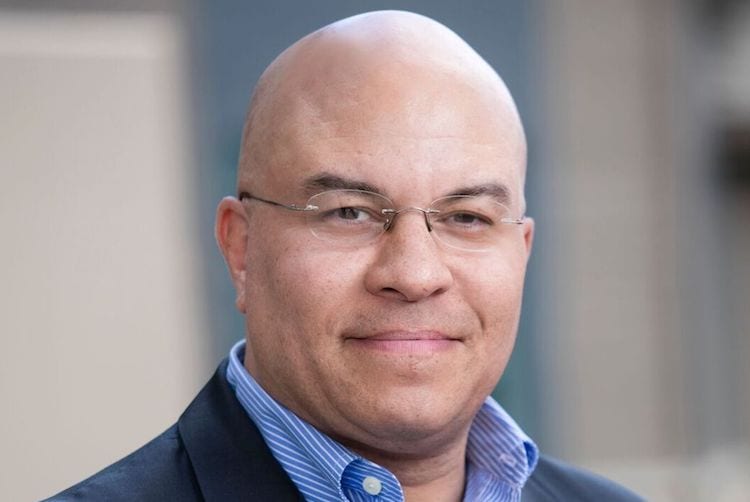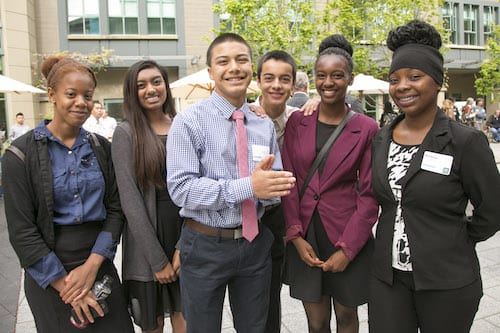In honor of Black History Month, we’re running a series of profiles and Q&As with members of the African-American community at Haas. Follow the series throughout February.

Devon Howland’s passion for mentoring led him to a fitting role, as internship and alumni coordinator for the Boost@BerkeleyHaas pre-college program. The 30-year-old program has helped prepare more than 1,000 Bay Area high school students to become the first in their families to go to college.
Howland, a first-generation college student himself, oversees all aspects of work-readiness requirements for students entering Boost@BerkeleyHaas summer programs, internships, and site visits to Bay area employers.
We spoke with Devon about his views on black history in America and on Black History Month, and the need to do a better job in teaching black history in schools.
How did you learn about black history in America?
Personally, I had to go out to find black history on my own through study and personal stories. What we learn in school is just insufficient. I happened upon an African-American history museum as a junior in high school and got really interested in the topic, which led to me reading and researching on my own. I first read The Autobiography of Malcolm X by Alex Haley and I Know Why The Caged Bird Sings by Maya Angelou. These books helped me see into the lives of other blacks so I could relate my life to theirs. In the end, this allowed me to value black people and their contributions in ways my education did not.

This desire to know about and value the lives of those like me continues and fuels my current family genealogy searches. Ultimately, this led me to realize that black history too often gets reshaped and softened in its retelling. I think partially this could be because young people would naturally question why our founders displaced the original inhabitants of this land and enslaved others to build it. We must teach how this oftentimes torturous and demeaning yet sometimes inspiring and brave history has been and continues to challenge black status in U.S. society.
What do you think of Black History Month?
I’m glad it was initiated by (historian and author) Carter G. Woodson, but in its implementation, we have stopped short of making it all it could be: an opportunity to talk about this very tangled, difficult, and tragic story of how black people were brought to this country and later made to integrate into a society that was unwilling to accept them. Let’s rightly celebrate what has been achieved for sure. We all are direct recipients of intentional and unintentional foundations laid by all our predecessors.
How do we do a better job of educating K-12 students about this?

We have a generation of young people who no longer want to be victims, nor put up with what prior generations put up with. After the shooting of Trayvon Martin (the unarmed 17-year-old African-American teenager from Miami Gardens, Fl., who was fatally shot by George Zimmerman), many became aware that African-American parents must have these difficult talks with our sons and daughters about how to survive. We must tell our sons what they can and cannot do in a public setting because it might risk their lives. K-to-12 could be this great place to bring to life these ugly realities that people of color have to face.
Who are your heroes in the black community?
I would just point to people in my life who took the time to invest in me. In the past, that would include people in my neighborhood, but it’s also been people of color in positions at the university or in the corporate world, or even just my uncles, who were father figures to me, who stepped up. When I think about Black History Month, I think about people like that. Not necessarily nationally known figures, but people who had their own opportunity to make an impact and influence and used it.
You also mentor outside of Berkeley Haas.
Devon Howland: This current generation desperately needs mentors who can really be their heroes. I currently mentor several youths I’ve met through volunteering with two programs that impact teens: Alive and Free and Young Life. Both organizations focus on helping to young people at risk and their need for Christian values, respectively. In both I see how small investments of my time and heart produce tremendous tangible dividends in the lives of young people. Inside and outside of work, I get to see lives change. In the end, there is nothing more rewarding than that.